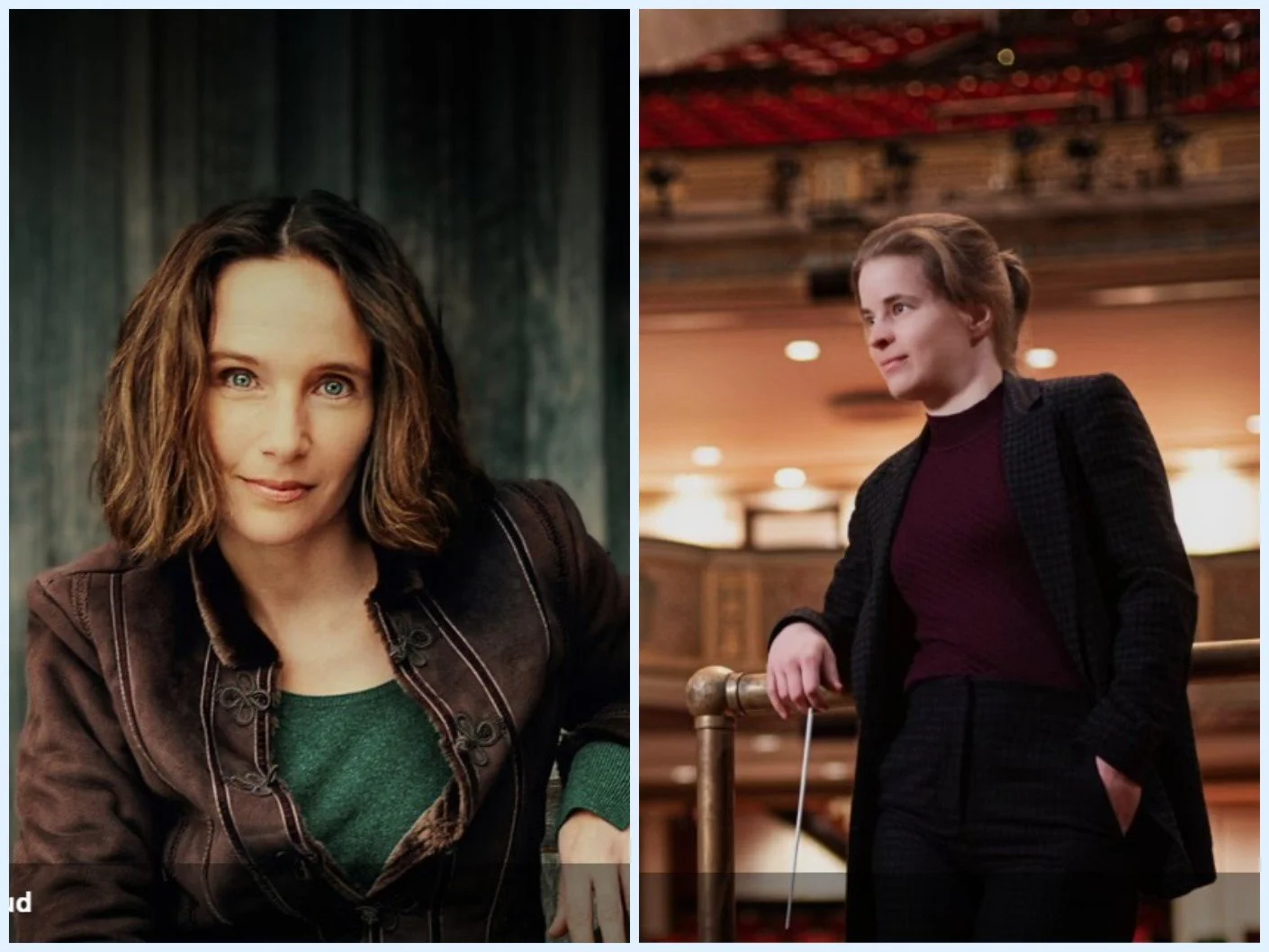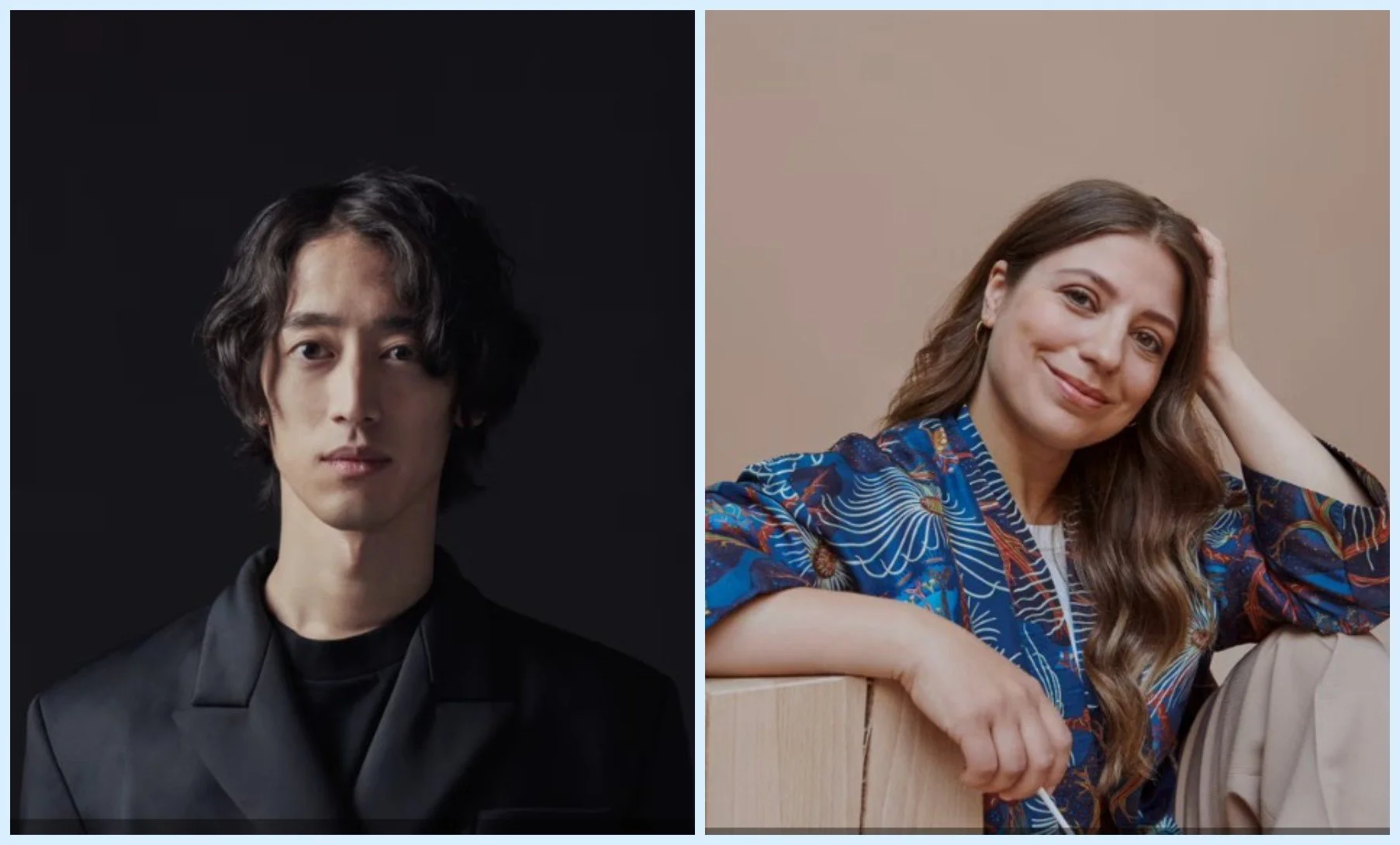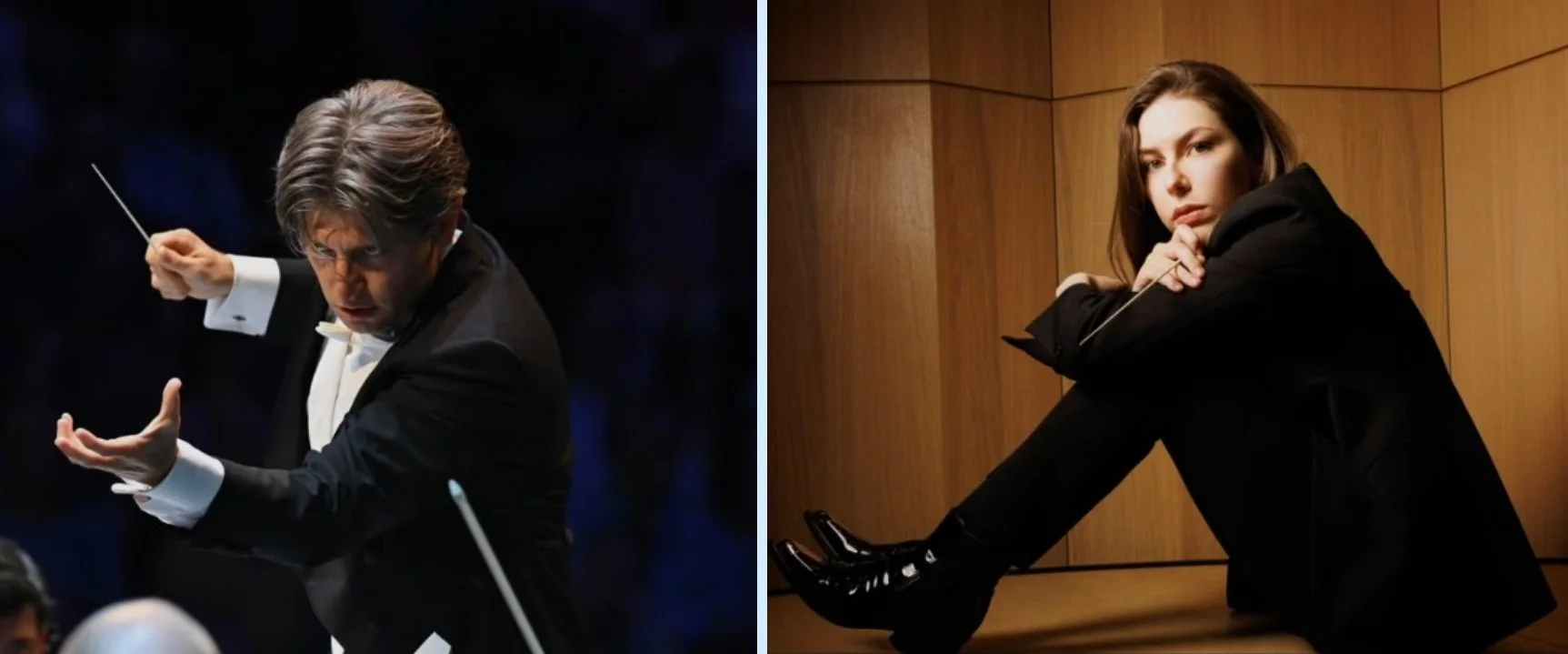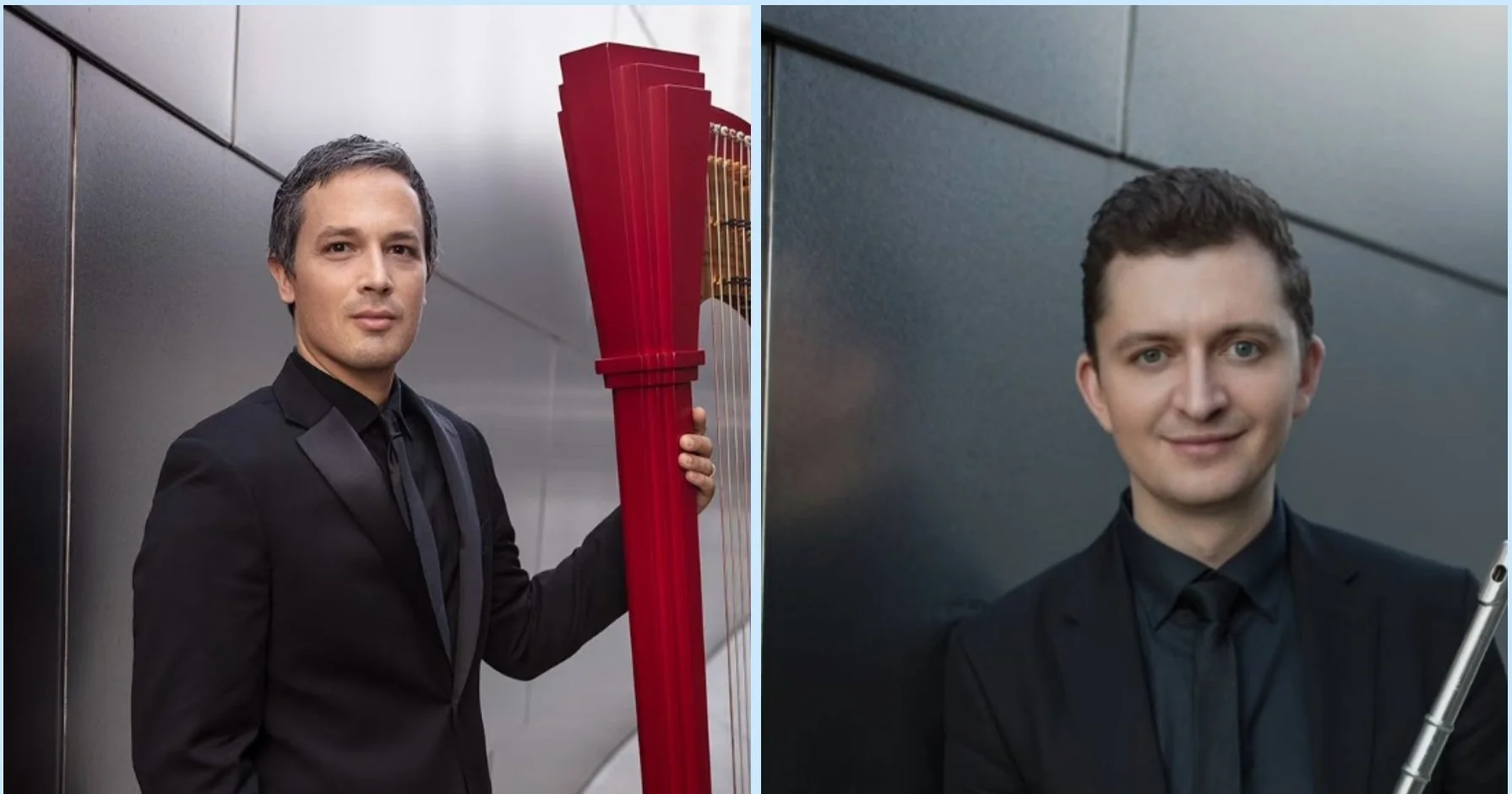In Cold July, A Sizzling Starry Lineup Heats Up Hollywood Hills
/By Truman C. Wang
7/31/2025
The LA Phil’s summer season at the iconic Hollywood Bowl got underway in July, classical nights on Tuesdays and Thursdays, and lasts through early September. This summer, Dudamel’s last, will see the beloved maestro conduct only two concerts (August 5 and 7), with his successor to be named later in the fall season. I have heard a few names of would-be successors being tossed around through the grapevine, all plausible and of high merits, albeit a few shoe-sizes too small.
So this summer’s big draw is not big-name conductors, but a starry lineup of guest soloists – French pianist Hélène Grimaud, Japanese superstar jazz crossover pianist Hayato Sumino, the San Francisco Ballet – to name a few in the month of July.
For the Thursday, July 17 concert, I went against my own advice and drove to the Bowl instead of taking the Park and Ride shuttle. The parking lots were surprisingly empty and going in and out was a breeze. I attributed it to the parking fee increase to $55 and reduced parking spaces, forcing many patrons to take public transportation.
In the Brahms’ First Piano Concerto on July 17, Hélène Grimaud was the soloist. Her playing was energetic and she gave a sensitive performance. The piano tone was harsh, clanking from the Bowl’s poorly-amplified loudspeakers, and the orchestra-piano balance was crude. Nonetheless, in agitated passages, Ms. Grimaud sounded like a heaven-storming true Brahmsian. The young conductor Tabita Berglund was a fine collaborator, drawing compelling, dark-hued colors from the orchestra that complemented Ms. Grimaud’s dramatic playing. After the intermission, the Norwegian maestra gave a delightful reading of Edvard Grieg’s incidental music from Peer Gynt, in reverse order, starting with the festive wedding music, followed by Suite 2 and Suite 1, and ending with a pristine “Morning mood” and a thrilling “Hall of the Mountain King”. This German and the Scandinavian program was a real crowd pleaser, sending everyone home humming and smiling.
The poor sound amplification for classical music at the Hollywood Bowl is most unfortunate, given the high caliber of artists visiting summer after summer. It managed to make Yo-Yo Ma’s solo cello sound like an electronic synthesizer, or a piano concerto into a piano and an orchestra piping in from separate rooms. None of which mattered in the July 19 Tchaikovsky Spectacular, where the dancers and fireworks offered plenty of welcome extra-musical distractions.
Mexican conductor Carlos Miguel Prieto was an unlikely choice for this all-Tchaikovsky program, and he acquitted his musical duty brilliantly, as well as being a delightful personality and speaker. It was an ambitious pairing of the LA Phil and the San Francisco Ballet that proved a match made in heaven. Not only were the dancers showing great chemistry in their Pas de Deux (Jasmine Jimison and Joseph Walsh as white swans, Wona Park and Wei Wang as black swans), but the orchestra played delicate singing phrases and seemed to breathe with the dancers in the music’s ebb and flow. The solo dances were also very fine – the Prince’s powerful Act III dance variation, Odile’s dazzling fouettés (with matching filigree work from the strings and winds.) The four cygnets showed why they’re everyone’s favorite in Swan Lake: their interlocked arms moving gracefully and precisely in synch, giving the illusion of gliding in a puffy cloud. Balanchine’s “Diamonds” Pas de Deus was danced with great feeling and tenderness by Sasha de Sola and Harrison James. The concluding 1812 Overture never gets old. This year, the fireworks, as spectacular as in years past, were augmented with canons firing in synch to the music and the blazing brass of the USC Trojan Marching Band.
Arturo Toscanini, in a rehearsal, snapped at his star soloist, “Under the sun, no one can see the stars!” In the conspicuous absence of Gustavo Dudamel this summer, and in a ‘June gloom’ that overstayed its welcome well into July in the Hollywood Hills, the stars all came out to play and shone brightly. The brightest star thus far was Hayato Sumino, who made his Bowl debut on July 22 with an impressive resume: a 2021 Chopin International Piano Competition semi-finalist, a university degree in mathematics, a YouTube star known as “Cateen” with 1.48 million subscribers. His jazz rendition of Gershwin’s Rhapsody in Blue was full of fanciful, surprising improvisations that often pushed interpretive boundary to unknown territories. In one of his many jazzy cadenzas, Mr. Sumino blew into a melodica mini-keyboard via an attached tube, creating an auditory illusion of a jazz duo for piano and harmonica (or it could be a phone ringtone.) When he returned to play an encore – Gershwin’s “I’ve Got Rhythm” – it was with the same irrepressible, foot-stumping energy and virtuoso improvisation that bordered on the maniacal. It brought awe and smiles to the faces of LA Phil musicians, and the capacity audience to their feet. Dalia Stasevska, another rising young conductor from Scandinavia (Finland), created musical fireworks with Ginastera’s “Malambo” from Estancia, and gave an unsentimental reading of Dvořák's "New World" Symphony, although one wished the famous cor anglais Largo theme were played with more feeling.
Daniele Rustioni was the Italian conductor on July 29. He brought considerable theatrical flair to the works inspired by Rome. His animated style, sweeping gestures and infectious energy gave an evening of Mediterranean warmth, starting with a glittering Roman Carnival Overture (depicting the festivities in Rome’s Piazza Colonne). Veronika Eberle, the German soloist for Mendelssohn’s Violin Concerto, was crystalline in her technique and cerebral in her interpretation without sounding clinical. The first movement had just a whiff of melancholy air, which extended to the lyrical second movement with a heavy-hearted middle section, but all that gloom and anguish were swept away in a gleeful rondo finale of pulsating filigrees by the solo violin. Ms. Eberle’s partnership with the orchestra felt like an intimate conversation between old friends. After intermission, Liszt’s rarely heard incidental music for the melodrama Prometheus was given a probing, dramatic reading, concluding in a heroic brass chorale and tutti strings of great contrapuntal power. The program ended, appropriately, in Rome, with Respighi’s Pines of Rome, in a most atmospheric and colorful account that one could wish for. The oft-complained loudspeakers of the Bowl sounded well-balanced for once in the passages involving offstage trumpets, muted strings and clarinet solo leading to bird calls.
The young German conductor Anna Handler, a former ‘Dudamel Fellow’, led the July 31 concert. To start, she chose a new work by her Juilliard classmate Eunike Tanzi, Ode to the City of Dreams, a splashy, shimmering curtain-raiser that is as much a homage to the City of Angels as to cinematic magic of Hollywood. Mozart’s Concerto for Flute and Harp showcased two LA Phil principals -- Denis Bouriakov (flute) and Emmanuel Ceysson (harp) There was a lot of playful, good-natured contest between the flute playing the main themes and the harp playing the obbligato. The Andante, a beautiful walk in the garden with fragrant scents wafting in the air, was pure chamber music magic. The orchestra provided the perfect cushion of support. Richard Strauss’ Also sprach Zarathustra was a 20-minute tempest in a teapot: monumental, contemplative, whimsical in its treatment of Nietzche’s Superman theme, which eventually fizzles out into a void, the final ambiguous chords hung in the air like a question mark, leaving the audience suspended between earth and stars (for those fans of “2001: A Space Odyssey”). Oh what fun it was to end the concert (and the month) with The Blue Danube Waltz by the other Strauss. It sent the audience home all smiles and dancing. This concert was dedicated to philanthropist Wallis Annenberg, who passed away on July 28.
Truman C. Wang is Editor-in-Chief of Classical Voice, whose articles have appeared in the Pasadena Star-News, San Gabriel Valley Tribune, other Southern California publications, as well as the Hawaiian Chinese Daily. He studied Integrative Biology and Music at U.C. Berkeley.









